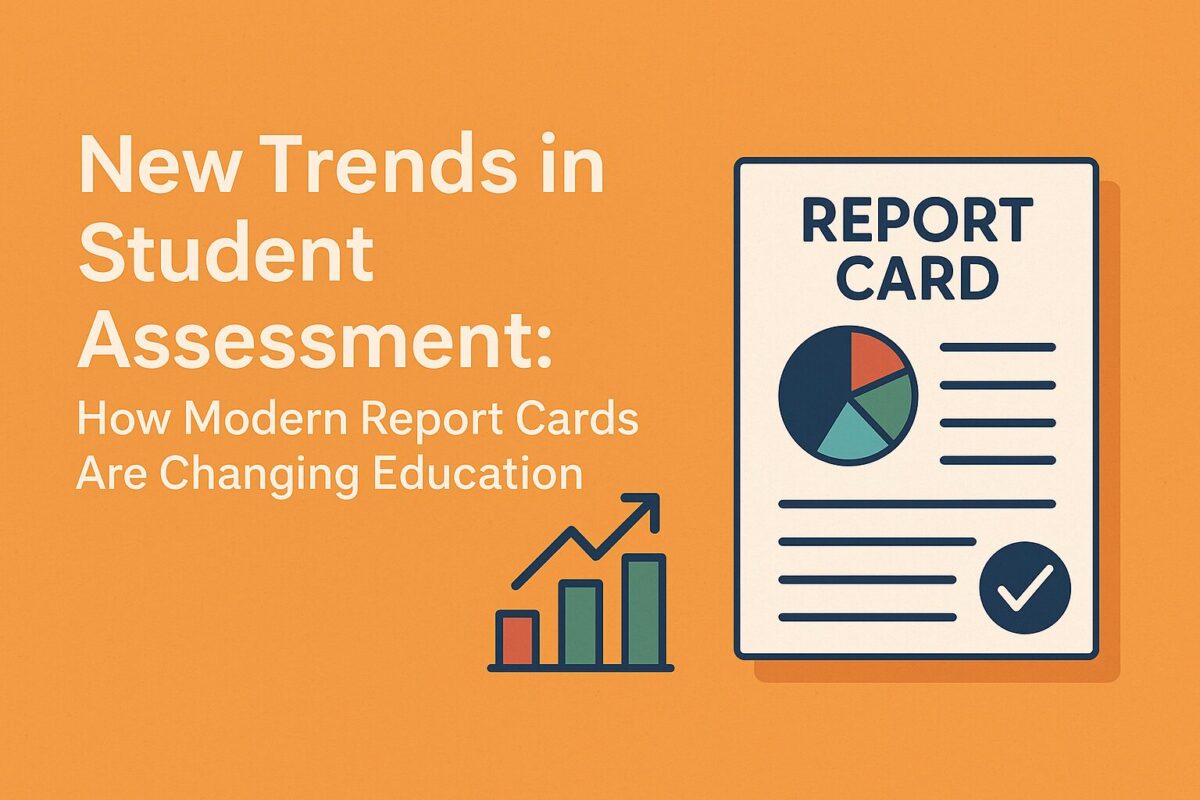In a world that is evolving faster than ever, the education system is under increasing pressure to keep up. Traditional report cards, which focus almost exclusively on numerical grades and standardized test scores, are being challenged by more dynamic and student-centered approaches to assessment.
Modern report cards are no longer just a summary of academic performance. They are becoming tools that reflect a more nuanced picture of student development—one that includes emotional intelligence, creativity, collaboration, and critical thinking. This shift is not just a passing trend; it’s a necessary transformation driven by the need for well-rounded learners ready to thrive in the 21st century.
Educators today are embracing new frameworks and tools that reflect the multifaceted growth of students while harnessing digital systems to streamline progress tracking and communication. Let’s explore how these trends are reshaping student evaluation—and what it means for schools moving forward.
Why Traditional Report Cards Are No Longer Effective
For decades, traditional report cards have been the go-to method for evaluating student progress. They offer a concise snapshot—usually in the form of letter grades or percentages—meant to represent an entire term’s worth of learning. However, this format presents several limitations:
-
They focus too narrowly on academic achievement, often based on rote memorization and test-taking skills.
-
They fail to capture soft skills such as leadership, empathy, and collaboration—qualities that are crucial for success in real-world scenarios.
-
They offer limited actionable insights to guide teachers, parents, or students in understanding where support is needed or how a student learns best.
These shortcomings have led educators to seek more meaningful and personalized forms of assessment—ones that better align with modern pedagogical goals.
The Rise of Competency-Based and Skills-Oriented Assessment
Competency-based education is emerging as a powerful alternative. Unlike traditional models that move students forward based on age or seat time, competency-based assessment advances students based on their ability to demonstrate mastery of a concept or skill.
Key features of competency-based assessments include:
-
Focus on real-world application of knowledge.
-
Emphasis on individual learning paths, allowing students to progress at their own pace.
-
Feedback that promotes growth mindset rather than penalizing mistakes.
This model is particularly effective in capturing the diversity of learners in today’s classrooms. It respects the fact that students develop different strengths and need varied types of support to succeed—not just academically, but personally and socially as well.
What Is a Modern Report Card?
A modern report card extends far beyond grades. It is an enriched profile that captures:
-
Academic proficiency
-
Social and emotional development
-
Work habits and behavior
-
Creativity and problem-solving abilities
-
Collaboration and communication skills
Unlike traditional formats, modern report cards often use narrative feedback, student self-assessments, project-based evaluations, and skill maps. They are designed to be informative, actionable, and student-centric.
For example, a modern report card might highlight a student’s leadership in group projects, improvement in communication skills, or ability to manage time effectively. This comprehensive view helps parents and teachers understand not just what a student is learning, but how they are growing as individuals.
The Role of the Holistic Progress Card
The Holistic Progress Card is a flagship innovation in modern assessment. It is designed to reflect a complete picture of a student’s development—not just their academic success, but their social, emotional, and physical growth as well.
Key elements typically included in a Holistic Progress Card:
-
Cognitive Development: Academic performance and intellectual curiosity.
-
Emotional Intelligence: Ability to understand and manage emotions.
-
Social Skills: Collaboration, respect, empathy, and interpersonal effectiveness.
-
Physical Wellness: Participation in sports, health education, and physical stamina.
-
Creative Expression: Engagement in the arts, music, and innovation.
The National Education Policy (NEP) 2020 in India, for instance, has made the holistic report card a standard, emphasizing its use as a tool for supporting well-rounded development. Countries around the world are following suit, recognizing that learners need more than test scores to thrive.
By implementing holistic assessments, schools foster growth-oriented cultures where students are encouraged to develop their full potential.
Integration with Technology: Why Your School Management System Matters
As assessment practices become more complex and data-driven, schools need the right technology to support them. A robust school management system plays a critical role in:
-
Streamlining the creation and delivery of modern report cards
-
Tracking student progress across academic and non-academic domains
-
Facilitating parent-teacher communication with real-time updates and transparent reporting
-
Analyzing trends and performance metrics for continuous improvement
For example, a school management system can integrate a holistic progress card with classroom observations, student portfolios, attendance records, and extracurricular activities. This gives educators a 360-degree view of student development and enables early interventions when needed.
When selecting a platform, schools should look for features like customizable report templates, real-time dashboards, secure cloud access, and multilingual support.
Real-World Examples & Success Stories
Several schools have already seen powerful results from adopting modern assessment models.
Case Study: A Progressive CBSE School in Bangalore
This school introduced holistic progress cards along with a digital platform to manage academic records and behavioral data. Within one year:
-
Parent satisfaction rose by 35%.
-
Student participation in extracurriculars increased by 40%.
-
Teachers reported having better clarity on student progress and areas for support.
International Example: A Charter School Network in California
By shifting to competency-based reporting and using a cloud-based school management system, the school saw significant gains in student achievement and engagement. It also allowed educators to offer real-time support through analytics and progress tracking tools.
Challenges and How to Overcome Them
1. Resistance to Change
Educators and parents accustomed to traditional grading may initially resist the new model. Solution: Offer workshops and sample report cards to demonstrate the value and clarity of the modern approach.
2. Teacher Training
Effective implementation requires training teachers in new assessment methods. Solution: Schedule regular professional development focused on competency-based evaluation and feedback strategies.
3. Tech Integration
Migrating to digital systems can be resource-intensive. Solution: Choose scalable, user-friendly platforms with strong onboarding support.
How to Get Started
Ready to modernize your student assessment strategy? Here’s how to begin:
-
Audit your current assessment practices: Identify gaps in what you’re measuring vs. what matters most for student success.
-
Engage stakeholders: Bring parents, teachers, and administrators into the conversation early.
-
Select the right tools: Look for platforms that support the Holistic Progress Card and integrate with your School Management System.
-
Pilot and iterate: Start with a few grades or classrooms and use feedback to improve implementation.
-
Invest in professional development: Train teachers on both the pedagogy and technology behind the new system.
Conclusion
The shift from traditional report cards to modern, meaningful assessments is not just a trend—it’s a reflection of how education is evolving to meet the needs of the whole child. By embracing tools like the Holistic Progress Card and integrating them into a smart School Management System, schools can create a learning environment where every aspect of student growth is seen, celebrated, and supported.
In doing so, schools empower their students not just to succeed in exams—but to thrive in life.





